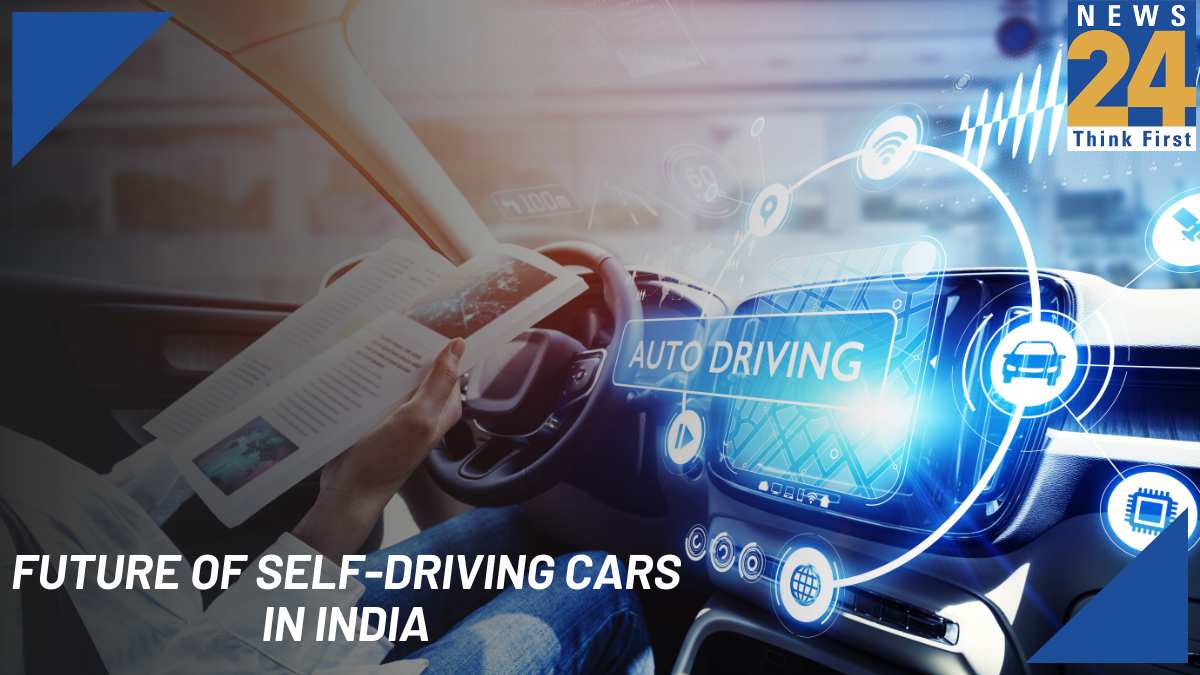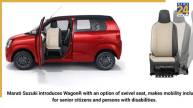The autonomous or self-driving cars market in India is projected to grow at a 20.8% CAGR during 2022-2032 (Spherical Insight Report). According to another report from IMARC, India’s autonomous vehicle market is poised to grow at a 21.5% CAGR during 2023-2028. Faster adoption of electric vehicles in India (mainly due to the Indian government’s tax sops and other EV promotion policies like FAME I & II) has helped in the growth of automatic electric cars in India.
Self Driving Electric Cars Market in India: Current Scenario
Most automatic electric cars sold globally have limited automation levels. They come with Level 2 or Level 2+ automation levels that have ADS features. This feature enables these cars to change lanes automatically and self-adjust both speed and brake. However, they are not completely driverless or self-driven. The driver has to keep his/her hands on the steering wheel.
In India, no cars have fully self-driven capabilities. Limited automation features such as ADAS (Advanced Driver Assistance Systems) are available in many electric cars in India. Some of them are MG ZS EV, Mahindra XUV700, TATA Nexon EV, BYD Atto 3, and MG Gloster.
Also Read: MG 4 EV: Unveiling Future Of Electric Mobility With Cutting-Edge Features
Currently, the demand for luxury autonomous cars (with Level 1 and 2 automation) is increasing rapidly in emerging markets such as India, Indonesia, Malaysia, Vietnam, and China.
BMW is ahead in capturing the luxury automatic cars market in India. The most popular ones are the BMW X7, X5, and X1. While BMW X7 cars are the luxury mild-hybrid models (Electric + Petrol/Diesel), the BMW X5 and BMW X1 are automatic petrol/diesel models.
Reports say that BMW 7 and i7 series sedan models will enable hands-free driving. They will come with the BMW Personal Pilot Level 3 autonomous driving system. This hands-free driver assistance technology is capable of controlling the car at up to 60 Kmph speed. Initially, self-driving BMW 7 and i7 cars will be available in Germany only. The launch date of the BMW 7 and i7 self-driving electric cars in India is yet to be announced.
What are the Future Prospects of Self Driving Electric Cars in India?
A few years back, Dara Khosrowshahi, Uber CEO, had said that India would likely be the last country in the world to have driverless self-driving cars. A KPMG India report concluded that India is the 2nd least prepared country to have driverless vehicles. Let’s explore the challenges and opportunities.
Challenges
There are 5 main challenges to the future prospects of self driving electric cars in India:
- Infrastructural Challenge
Unlike Western countries, Indian roads (especially in metro cities) are overflowing with traffic. In addition, the signage and markings are both inadequate and inconsistent. Hence, driverless car sensors or ADS features will face the problem of deciphering the road signs.
- Technological Challenge
To implement autonomous driving, real-time data transmission is needed. India lacks interconnected car technology, which also hinders the prospects of self driving electric cars in India.
To create and implement a self driving electric car in India, it would need millions of kilometres of real-world data. Only after that, an algorithm can be created for these cars that are suitable for Indian driving conditions.
- Civic Sense Challenge
A major reason for accidents in India is the affinity of drivers to break traffic rules and reckless driving. In addition, animals like cows roam freely on Indian roads, which is another stinging issue. Self driving cars can’t preempt reckless driving, traffic violations, unruly behaviour of pedestrians crossing roads, and roaming animals crossing roads.
- Legislative Challenge
There is no provision for self driving electric cars in the Indian Motor Vehicles Act 1988. To enable automatic cars to ply Indian roads, the concerned act needs a complete overhaul.
- Governmental Challenge
In India, driving is the 6th most common job. According to the Periodic Labor Force Surveys (PLFS), around 4% of people worked as “drivers and mobile-plant operators” during 2017-18. In India, it is the second fastest-growing occupational category after “Labourers in mining, construction, manufacturing, and transport.” The overall cumulative valid driver’s licenses in India were around 236 million in 2020.
As there is such a huge number of people involved in driving vehicles professionally, the Indian government is apprehensive about job loss. According to the Minister for Road Transport and Highways, Nitin Gadkari, around 1 crore jobs will be lost if driverless cars become a reality one day. He also went on to say on record that he wouldn’t allow fully automatic self driving cars to ply on roads in India.
Opportunities and Benefits
India has the potential to benefit immensely from self driving electric cars in India. Let’s explore.
- 90% Drop in Traffic Deaths
In 2022, 1.68 lakh deaths were caused due to road accidents. Around 70% of traffic deaths of them were caused by speeding. According to estimates, the implementation of driverless self driving cars in India could reduce traffic deaths by over 90%.
- 60% Reduction in Harmful Emissions
According to the Future of Driving report of Ohio University, the successful implementation of driverless cars could revolutionise traffic-flow dynamics. This will likely decrease harmful emissions by at least 60%.
Electric cars have no tailpipe emissions, which essentially reduces harmful emissions by at least 3-times more than petrol or diesel cars.
- No Noise Pollution
A recent Gridserve survey has pointed out that the major source of traffic noise is petrol/diesel cars. Road noise pollution is causing mental health agony and loss of sleep among a significantly large number of people.
Self driving electric cars in India can mitigate this problem significantly because the engines of electric vehicles have no noise. According to the Gridserve report, electric vehicles can lower noise pollution by around 10 dB in comparison to petrol/diesel-run vehicles.
Also Read: One Tap And Car Will Be Parked! Tesla To Bring ‘Auto Park’ Feature
Future Prospects
Currently, there are a handful of demonstrations and prototypes of self driving cars in India. With more EVs on the roads, the Indian government aims to cut CO2 emissions by around 37% in the next seven years.
The self-driving electric vehicle market across the world is projected to grow significantly during 2021-2030, as per Allied Market Research.
This growth will be brought by 4 factors:
- Advanced development in AI (artificial intelligence)
- LiDAR technology development
- Rise in concerns over carbon footprint
- Favourable rules and regulations by the Indian government
As per estimates, EV sales will be around 35% of the total automobile sales in India by 2030. It is likely to become 50% by 2070. By 2030, the higher numbers of self driving electric cars in India will decrease CO2 emissions by at least 5 Mt. The carbon dioxide emission will further fall by around 110-380 Mt by 2050.
Final Words
The work to manufacture self driving electric cars in India is in full swing. zPod is the first autonomous car that is suitable for Indian roads. The USP of this car is its technology. Instead of using LiDARs, zPod uses camera sensors. This enables the car to operate based on nature-inspired AI, enabling it to operate more like humans.
Tata Motors, in this respect, has introduced the first-ever ADAS technology, which comes with collision mitigation features, tyre pressure monitoring, hill-hold assistance, and lane departure warning. ADAS or Advanced Driver Assistance System uses multiple components such as LiDAR, camera, ultrasound sensors, actuators, radar, and many more.
With further use of improved connectivity, AI, ML, and semiconductors, the level of automation in self driving electric cars in India can jump from Level 2 to Level 3. This means, there will be more self driven cars in India in the future that can handle more driving tasks independently, paving the way towards a driverless car economy.













